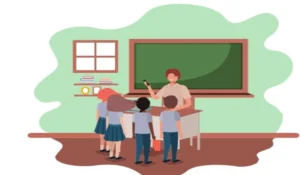Disruptive behavior in teens is a big challenge for teachers. It affects how the class works and how students feel. But when we look closer at why it happens, we see it’s not just about being difficult – it’s about a lot of things going on in their heads and lives.
Disruptive behavior often emerges as a means for individuals, especially adolescents, to communicate underlying needs, emotions, or challenges that may otherwise go unnoticed or unaddressed. It’s a form of expression, albeit unconventional, through which individuals seek acknowledgment, validation, or assistance. It could be a cry for help, a response to stress or trauma, or an attempt to assert autonomy. Understanding the nuanced motivations behind disruptive behavior enables us to respond with empathy and support, addressing the underlying needs while fostering healthier modes of expression and interaction.
Understanding the Psychology:
Teens are going through a lot of changes in their brains and emotions. They’re trying to figure out who they are, deal with peer pressure, and handle all the ups and downs of growing up. Sometimes, acting out is their way of expressing how they feel or trying to be independent.
The Science Behind It:
Science tells us that the part of the brain responsible for making smart choices and managing feelings is still developing in teens. That means they might struggle with controlling their actions or handling strong emotions. Chemicals in their brains can also affect how they act, making them more impulsive or moody.
What Teachers Can Do:
Instead of getting mad or ignoring the problem, teachers can try to understand what’s really going on with the student. Maybe they’re feeling stressed about something at home or having trouble with the lesson. Talking to them and finding out what’s bothering them can make a big difference.
Avoiding Power Struggles:
It’s important for teachers not to get into fights with students about who’s in charge. Instead, focusing on helping them calm down and get back on track can be more helpful. Setting clear rules and praising good behavior can also encourage them to make better choices.
Handling Disruptions:
When disruptions happen, redirecting students’ attention to something else or giving them a task to focus on can help.
Building positive relationships with students and working together with their families can also make a big difference in helping them feel supported and valued.
Additionally, it’s crucial for teachers to maintain confidentiality when discussing students’ behavior or personal issues, respecting their privacy and building trust.
As we conclude, let’s keep in mind that behind every disruptive behavior lies a story waiting to be heard. It’s in these moments of challenge that we have a chance to truly connect, empathize, and make a difference.



